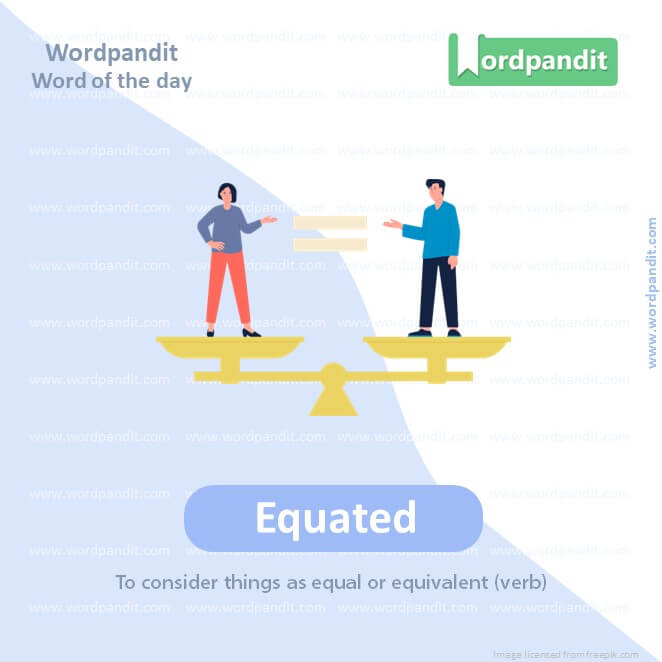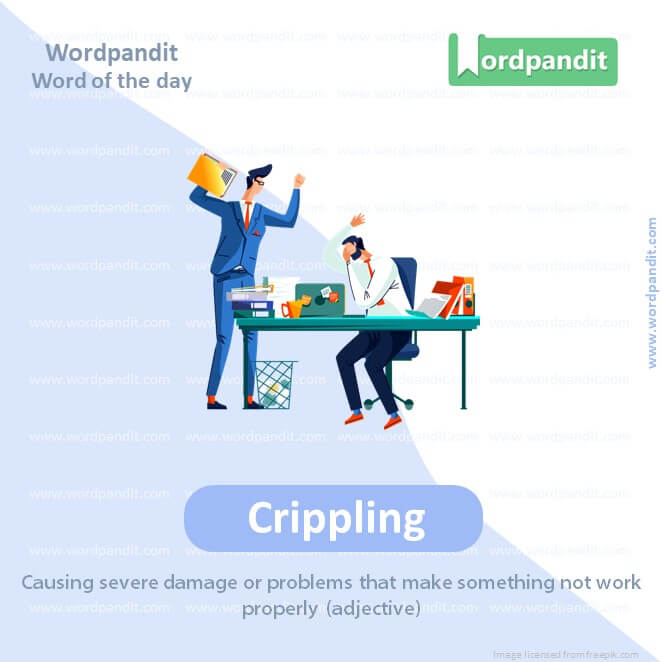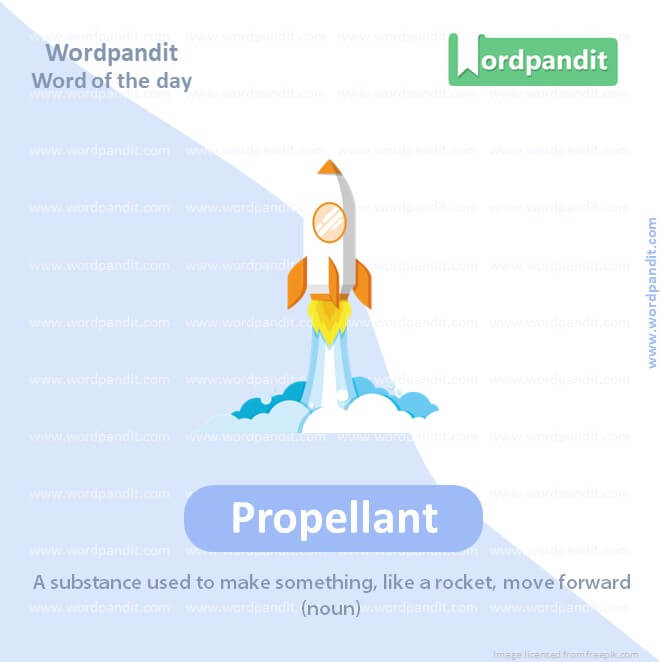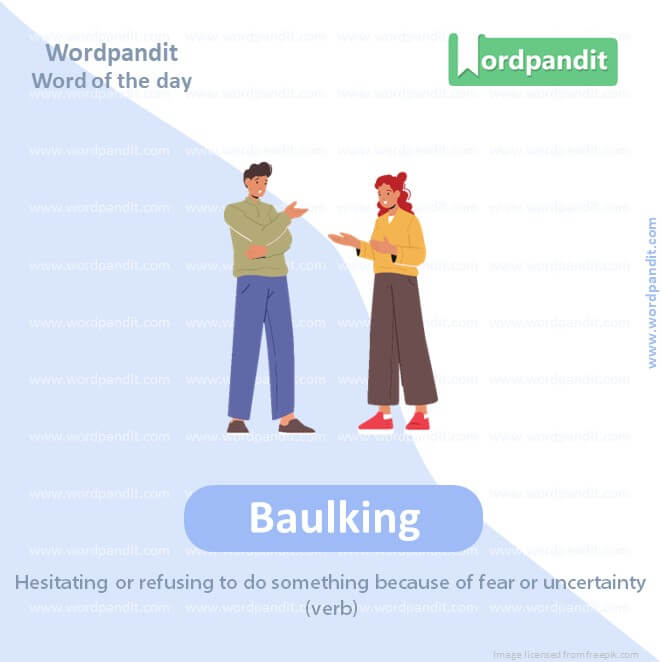Daily Vocabulary Words: List of Daily Used Words
Hi there. Welcome to this special section @ Wordpandit.
Our endeavour here is straightforward: highlighting important daily vocabulary words, you would encounter in The Hindu. This is your repository of commonly used words; essentially, we are posting a list of daily used words. Hence, this has significant practical application as it teaches you words that are commonly used in a leading publication such as The Hindu.
Visit the website daily to learn words from The Hindu.

WORD-1: Equated
CONTEXT: The justification for this move — CPR’s publications have been equated with current affairs programming, prohibited for an entity using FCRA funds — is nothing if not farcical.
SOURCE: The Hindu
EXPLANATORY PARAGRAPH: Imagine having two toy cars, and you say they’re both the same because they’re both red. That’s like “equating.” It means considering two things to be the same or equal in some way, like saying two toys are equally fun to play with or two friends are equally nice to you.
MEANING: To consider things as equal or equivalent (verb).
PRONUNCIATION: ih-KWEYT-ed
SYNONYMS: compared, likened, matched, identified, correlated, associated
USAGE EXAMPLES:
1. She equated success with happiness in her life.
2. The coach equated hard work with achieving one’s goals.
3. He equated love with loyalty and trust in relationships.
4. The author equated freedom with the ability to pursue one’s dreams.

WORD-2: Crippling
CONTEXT: A decision to effectively shut down such an institution by crippling its finances is bound to send the message that India is no longer open to the free flow of knowledge and ideas.
SOURCE: The Hindu
EXPLANATORY PARAGRAPH: Imagine someone tying your shoelaces together so you can’t walk properly. That’s like something being “crippling.” It means causing severe damage or impairment, like an injury that makes it hard to move or a problem that makes it impossible to continue with your plans.
MEANING: Causing severe damage or problems that make something not work properly (adjective).
PRONUNCIATION: KRIP-uh-ling
SYNONYMS: debilitating, paralyzing, incapacitating, disabling, hampering, impairing
USAGE EXAMPLES:
1. The company faced crippling financial losses after the economic downturn.
2. His arthritis was crippling, making it difficult for him to use his hands.
3. The accident left her with a crippling fear of driving.
4. The disease had a crippling effect on his ability to walk.

WORD-3: Stipulated
CONTEXT: Shortly after the stipulated time, reports from JAXA indicated the lander had touched down but its solar panels were not producing power, forcing the craft to bank on its batteries.
SOURCE: The Hindu
EXPLANATORY PARAGRAPH: Imagine agreeing to do your chores before you can play with your toys. That’s like “stipulating.” It means specifying or demanding something as part of an agreement or condition, like saying you’ll only go to a party if your friend promises to come too or setting rules for a game before you start playing.
MEANING: Specifically demanded or stated as a condition in an agreement (verb).
PRONUNCIATION: STIP-yuh-leyt-ed
SYNONYMS: specified, required, mandated, demanded, established, dictated
USAGE EXAMPLES:
1. The contract stipulated a minimum number of hours per week.
2. She stipulated that all guests must RSVP by a certain date.
3. The rules of the competition stipulated that contestants must be over 18.
4. The agreement stipulated that payment must be made in full within 30 days.
WORD-4: Interplanetary
CONTEXT: Chandrayaan-3, was tasked with a lunar soft-landing and deploying a rover mission (with two small rovers) but its primary mission was pioneering. Thus far, interplanetary spacecraft to the moon and Mars have been assigned suitable landing areas several hundred metres wide.
SOURCE: The Hindu
EXPLANATORY PARAGRAPH: Imagine traveling in a toy rocket ship and flying from Earth to Mars. That’s like something being “interplanetary.” It means relating to or occurring between different planets, like exploring outer space or imagining what life might be like on other planets.
MEANING: Relating to or occurring between different planets, especially within a solar system (adjective).
PRONUNCIATION: in-ter-PLAN-i-ter-ee
SYNONYMS: celestial, cosmic, space, planetary, extraterrestrial, galactic
USAGE EXAMPLES:
1. The mission aimed to explore interplanetary space beyond the orbit of Mars.
2. Scientists study interplanetary dust particles to learn about the formation of our solar system.
3. The spacecraft conducted an interplanetary voyage to study Jupiter’s moons.
4. Interplanetary travel may one day become a reality for humans.

WORD-5: Propellant
CONTEXT: a private U.S. company, and funded by NASA, reentered the earth’s atmosphere following a propellant leak.
SOURCE: The Hindu
EXPLANATORY PARAGRAPH: Imagine adding fuel to a toy car so it can move forward when you push it. That’s like “propellant.” It refers to a substance used to propel or drive something forward, like the fuel that powers a rocket or the energy that makes a toy car move.
MEANING: A substance used to make something like a rocket, move forward (noun).
PRONUNCIATION: pruh-PEL-uhnt
SYNONYMS: fuel, rocket fuel, gas, energy source, power source, thrust
USAGE EXAMPLES:
1. The rocket’s propellant ignited, sending it soaring into the sky.
2. The engine relies on liquid propellants to generate thrust.
3. The car’s propellant tank needed to be refilled before the next race.
4. The spacecraft used a combination of propellants for maneuvering in space.

WORD-6: Baulking
CONTEXT: Shippers are not baulking at taking the long, circuitous voyage around Africa.
SOURCE: The Hindu
EXPLANATORY PARAGRAPH: Imagine wanting to ride your bike down a big hill, but you’re too scared to start. That’s like “baulking.” It means hesitating or refusing to do something because you’re afraid or unsure, like not wanting to jump into a pool because you’re afraid of the water or not wanting to try a new food because you’re worried you won’t like it.
MEANING: Hesitating or refusing to proceed or do something, because of fear or uncertainty (verb).
PRONUNCIATION: BAW-king
SYNONYMS: hesitating, faltering, hesitating, wavering, balking, pausing
USAGE EXAMPLES:
1. She baulked at the idea of speaking in front of a large audience.
2. The horse baulked at the jump, refusing to continue forward.
3. He baulked at the thought of leaving his comfortable job for a risky venture.
4. The team baulked when faced with the daunting challenge ahead.
WORD-7: Transshipment
CONTEXT: Containers in the south typically find their way to the Colombo transshipment container terminal via Chennai, Tuticorin/Thoothukudi and so on.
SOURCE: The Hindu
EXPLANATORY PARAGRAPH: Imagine sending a package to your friend, but it has to go through several different trucks and planes before it reaches them. That’s like “transshipment.” It refers to the process of transferring goods or cargo from one mode of transportation to another during their journey from one place to another.
MEANING: The act of transferring goods or cargo from one mode of transportation to another during their journey from one place to another (noun).
PRONUNCIATION: trans-SHIP-muhnt
SYNONYMS: transfer, shipment, transfer, conveying, transport, conveyance
USAGE EXAMPLES:
1. The transshipment of goods from the port to the warehouse was delayed due to bad weather.
2. The company specializes in the transshipment of cargo between ships and trains.
3. Transshipment hubs play a crucial role in global logistics and trade.
4. The transshipment of goods by air is faster but more expensive than by sea.
WORD-8: Unfettered
CONTEXT: girls use the devices equally well as boys when they are given equal and unfettered access to the devices.
SOURCE: The Hindu
EXPLANATORY PARAGRAPH: Imagine taking off the leash from a toy dog so it can run freely around the yard. That’s like something being “unfettered.” It means being unrestricted or unrestrained, like being able to do whatever you want without anyone telling you what to do or where to go.
MEANING: free from restriction or restrained (adjective).
PRONUNCIATION: uhn-FET-erd
SYNONYMS: unrestricted, unrestrained, unbounded, unconstrained, free, unimpeded
USAGE EXAMPLES:
1. The artist’s creativity flowed in unfettered expression.
2. The company enjoyed unfettered access to the latest technology.
3. The new policy provided employees with unfettered flexibility in scheduling.
4. Citizens demanded unfettered access to information and freedom of speech.
WORD-9: Infringement
CONTEXT: The Court held that telephonic conversations are often of an intimate and confidential character and, since phone tapping is an infringement of the right to freedom of speech and expression under Article 19 of the Constitution, it is permissible only if it comes within the grounds of restrictions under Article 19(2).
SOURCE: The Hindu
EXPLANATORY PARAGRAPH: Imagine someone taking your favorite toy without asking and playing with it themselves. That’s like “infringement.” It means breaking a rule or law by taking something that belongs to someone else or using it in a way that’s not allowed, like copying someone else’s homework or using their ideas without giving them credit.
MEANING: The action of breaking the terms of a law, agreement, or right, especially by taking or using something unlawfully (noun).
PRONUNCIATION: in-FRINJ-muhnt
SYNONYMS: violation, breach, transgression, infringement, encroachment, trespass
USAGE EXAMPLES:
1. The company sued for copyright infringement after discovering unauthorized use of their designs.
2. The neighbor filed a complaint about noise infringement from the construction site.
3. The artist’s work was protected from infringement by copyright laws.
4. The company threatened legal action against any infringement of their trademarks.
WORD-10: Comprehend
CONTEXT: The Court also elaborated upon parameters to comprehend the occurrence of ‘public emergency’ and ‘public safety’, and clarified that unless one of these two conditions is met, interception cannot be resorted to, no matter howsoever necessary or expedient it
SOURCE: The Hindu
EXPLANATORY PARAGRAPH: Imagine reading a storybook and understanding every word and picture, knowing exactly what the story is about. That’s like “comprehending.” It means understanding something fully or grasping the meaning of information, like solving a math problem correctly or knowing the answer to a question your teacher asks in class.
MEANING: To understand or grasp the meaning of something, especially complex or abstract information (verb).
PRONUNCIATION: kom-pri-HEND
SYNONYMS: understand, grasp, apprehend, perceive, grasp, fathom
USAGE EXAMPLES:
1. She struggled to comprehend the instructions without any diagrams.
2. The teacher checked to see if the students comprehended the lesson by asking questions.
3. It took him a while to comprehend the concept, but he eventually understood it.
4. He couldn’t comprehend why she was upset until she explained her feelings to him.
Vocabulary Words with Meaning, Synonyms and Antonyms PDF
The voyage to language mastery often involves decoding the ‘vocabulary words with meaning, synonyms and antonyms PDF’. This valuable resource is a treasure chest of words, offering definitions, similar phrases, and contrasting expressions all in one place. Yet, recognizing the full potential of ‘vocabulary words with meaning, synonyms, and antonyms PDF’ entails more than just glossing over the words, it demands active and strategic engagement.
To uncover the richness of ‘vocabulary words with meaning, synonyms and antonyms PDF’, focus on understanding the context of each word, along with its synonyms and antonyms. Group words under themes to create word maps, linking synonyms and contrasting antonyms, for a better grasp of the material.
When delving into a ‘vocabulary words with meaning, synonyms and antonyms PDF’, use annotation tools for an interactive study experience. Make personal notes about each word and how you connect with it. This personalized touch aids in memorization and enhances recall.
To cement the learning from ‘vocabulary words with meaning, synonyms and antonyms PDF’, regular revision is pivotal. Spaced repetition, a learning technique where intervals between each review are gradually increased, can significantly enhance long-term memory retention.
The most crucial aspect, however, is practical application. The ‘vocabulary words with meaning, synonyms and antonyms PDF’ should act as a springboard for real-world application. Incorporating learnt words, along with their synonyms and antonyms, in conversations or digital interactions, reinforces understanding and boosts fluency.
In conclusion, navigating the ‘vocabulary words with meaning, synonyms and antonyms PDF’ is a cerebral adventure. A blend of contextual learning, annotation, regular revision, and practical application makes the journey a rewarding one. Grasping ‘vocabulary words with meaning, synonyms and antonyms PDF’ not only enriches your language skills but also adds vibrancy to your linguistic expressions.













